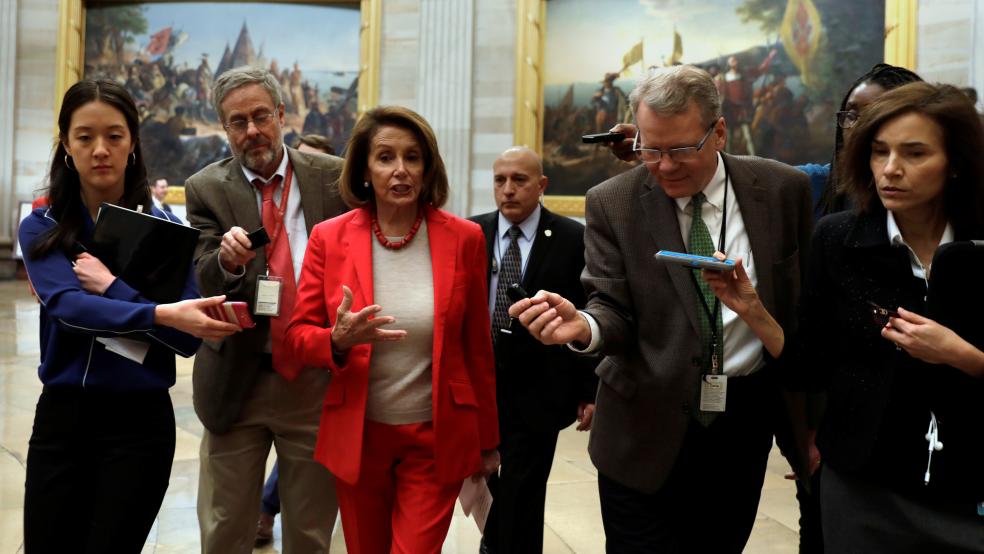The state of our union is … on hold?
House Speaker Nancy Pelosi sent a letter to President Trump Wednesday morning asking him to postpone his State of the Union address, scheduled for January 29, or deliver it in writing because of the government shutdown.
Citing frozen funding and furloughs for the Secret Service and the Department of Homeland Security, Pelosi wrote, “Sadly, given the security concerns and unless government re-opens this week, I suggest that we work together to determine another suitable date after government has re-opened for this address or for you to consider delivering your State of the Union address in writing to the Congress on January 29th.”
Here’s what you need to know:
Can Pelosi really do this? Yes. “The House and the Senate have to pass resolutions to actually green light the State of the Union. Neither have done so yet and Pelosi controls whether the House passes one at all,” CNN explains.
Is security really a concern? Pelosi expanded on her security concerns in remarks to reporters: “We would have the president of the United States, the vice president of the United States, the entire Congress of the United States, the House and Senate, the Supreme Court, the Joint Chiefs of Staff, the Cabinet of the United States, and the diplomatic corps all in the same room,” she said, according to The Washington Post. “This requires hundreds of people working on the logistics and security of it. Most of those people are either furloughed or victims of president’s shutdown.”
The White House did not respond immediately to Pelosi’s letter, but Republicans scoffed at the security issue and Homeland Security Secretary Kirstjen Nielsen dismissed any concerns. “The Department of Homeland Security and the US Secret Service are fully prepared to support and secure the State of the Union,” she tweeted.
Steve Scalise, the No. 2 House Republican, said Wednesday that Trump should deliver his speech anyway. “There are no security concerns that have been raised, and it has nothing to do with that,” Scalise said. "I’d encourage the president to still come and we’ll find a place for him to speak.”
The politics at play: While Pelosi framed her suggestion to Trump in security terms, it was also a shrewd political power play and a signal that she’s willing to use the leverage she now holds in a divided government. Her letter “could deny Trump an opportunity to make his case for border wall funding in a prime-time televised address,” the Post noted. The White House had reportedly been preparing to use the address to hammer Democrats for their steadfast refusal to give Trump the money he wants to construct a barrier along the border with Mexico. Pelosi told reporters that Trump could still give the address from the Oval Office if he wants, but that still wouldn’t be the same as an address delivered to Congress. “Elevated by all the pomp and pageantry of a State of the Union address, even Trump can manage to appear presidential—which could pose a political hazard for Democrats scrambling to avoid being blamed for the longest shutdown in American history,” Jeff Greenfield suggested at Politico.
The risk Pelosi runs: There’s a chance Pelosi’s move backfires if it’s seen as trying to keep Trump from speaking to the American public, CNN’s Chris Cillizza notes. Donald Trump Jr. tried to make that argument in an interview with The Daily Caller, a conservative website: “Speaker Pelosi is clearly attempting to block my father from giving his State of the Union speech, not because 20 percent of the government is shut down, but because she is terrified of him having another opportunity to speak directly to the American people about her party’s obstruction, unfiltered and without her friends in the media running interference for her.”





